Black Seed Oil benefits
Where does Black Seed Oil Come From?
Black seed oil is an oil derived by pressing the seeds of the Nigella Sativa plant. The seeds are also commonly referred to as black cumin. The nutrient-rich oil of black seed has been used for hundreds of years in the Middle East and South Asia as a natural remedy for a variety of ailments. The uniqueness of the seeds from southwest Asia Nigella sativa is first realized by the many names that it is referred to:
You may know black seeds from a variety of different names, depending on which part of the world you’re in. Here are a few of the more popular one’s:
• Black cumin
• Black caraway
• Black sesame
• Onion seed
• Roman coriander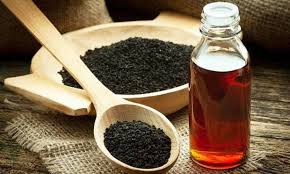
• Kalonji Oil
• Black Cumin Seed Oil
• Nigella Seeds
• Habbatus Sauda
• Graine De Nigelle
• Black Onion Seeds
• Schwarzkummel
• Black sesame
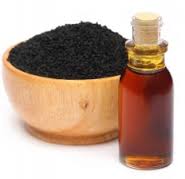
“Black seed” is actually more of a description than a proper name, yet is preferred because it helps to distinguish it from caraway and cumin. Many health experts claim that it is, indeed, a true panacea; able to help cure everything from allergies to hypertension. Quite possibly, the most promising research has been done connecting Nigella sativa to multi-drug resistant bacteria. This is a real big deal because these so-called “superbugs” are becoming a significant public health risk. According to the National Institute of Health:
Black seed oil is simply an extracted oil substance produced by the squeezing and compression of black seeds. There are countless of home appliances that will let you produce your own oil, or you can buy from amazon.com or buy from Baldwin’s in UK Also available in seed form or capsules.
How to use black seed
1. Eat black seeds plain;
2. Eat a teaspoon of black seed mixed with honey;
3. Boil black seed with water. Strain and drink;
4. Heat black seed and warm milk until it just begins to boil. Remove from heat. Cool, then drink;
5. Grind black seed and swallow it with water or milk;
6. Sprinkle on bread and pastries;
7. Burn black seed with bukhoor (incense) for a pleasant scent.
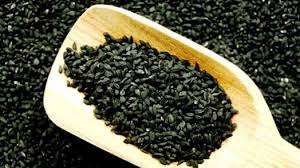
What are black seeds? The tiny, black, thick shaped cumin seed is most commonly referred to as ‘black seeds’ or ‘black cumin seeds’. They are slightly curved with a rough distinct texture that make them unique and easy to identify.
These ingredients of black seed oil enable it to act as a multipurpose natural remedy for just about anything and everything. Take a look at some of it’s properties:
• Anti-bacterial
• Anti-inflammatory
• Anti-oxidant
• Anti-fungal
• Anti-cancer
• Anti-asthmatic
• Anti-histamine
• Anti-viral
• Anti-coagulant
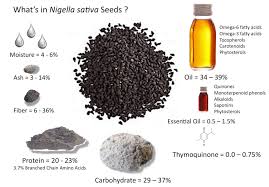 They assist your body’s immune system directly, giving it aid wherever needed. These are powerful anti-inflammatory compound. The 2 most potent chemicals it contains that cause it to be such an effective remedy is thymoquinone and thymohydroquinone. These 2 are the main responsible compounds that you can credit the wonderful healing effects:
They assist your body’s immune system directly, giving it aid wherever needed. These are powerful anti-inflammatory compound. The 2 most potent chemicals it contains that cause it to be such an effective remedy is thymoquinone and thymohydroquinone. These 2 are the main responsible compounds that you can credit the wonderful healing effects:
Thymoquinone – An active ingredient in black seed, researchers have been investigating TQ since the 1960s. It is well known for its anti-oxidant, anti-inflammatory and anticancer properties that have been reported to help with encephalomyelitis, diabetes, asthma and carcinogenesis. Interestingly, thymoquinone acts as a free radical or an effective superoxide radical scavenger, in addition to preserving antioxidant enzymes glutathione peroxidase and glutathione-S-transferase. Both Glutathione peroxidase and S-transferase are heralded for being major detoxifiers and greatly aid in cellular antioxidant defense systems because they protect the liver from toxins.
Thymohydroquinone – A kin to thymoqinone, thymohydroquinone is one of the most potent natural acetylcholinesterase (AChE) inhibitors on the planet. AChE inhibitors are chemicals that stop enzyme activity, which increases the amount of time and the amount of the neurotransmitter acetylecholine remains active in the brain. To give you an idea of their usefulness, pharmaceutical-grade acetylcholinesterase inhibitors are used medicinally to treat a wide range of conditions including:
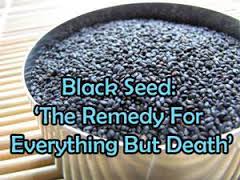 Apathy
Apathy
• Alzheimer’s disease
• Autism
• Glaucoma
• Dementia
• Myasthenia gravis
• Neurodegenerative conditions
• Postural Tachycardia Syndrome
• Schizophrenia
• Parkinson’s disease
Other Uses of Black Seed Oil
Allergies
 Black Seed Oil acts as an antihistamine which helps to reduce the common symptoms of allergies (watery eyes, sneezing). Simply take half a teaspoon of oil twice a day when allergy symptoms begin to appear.
Black Seed Oil acts as an antihistamine which helps to reduce the common symptoms of allergies (watery eyes, sneezing). Simply take half a teaspoon of oil twice a day when allergy symptoms begin to appear.
Flu and Fever
Black Seed Oil has been found to help reduce fever, by inducing perspiration which helps the body cool and stimulate the release of toxins. Take one teaspoon of Black Seed Oil once a day when flu/fever systems occur. Also be sure to drink plenty of fluids throughout the day.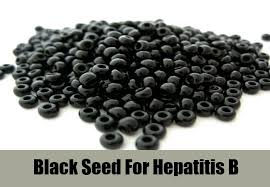
Boils and Carbuncles
Studies have shown that the anti-fungal properties of Black Seed Oil and its active component Thymoquinone help strengthen the immune system and cure many common skin infections including boils and carbuncles. Simply take half a teaspoon of Black Seed Oil twice daily (you can mix it into a hot or cold beverage).
Cough and Asthma Relief
 The anti-inflammatory and anti-bacterial properties of Black Seed Oil help treat the symptoms of acute asthma and coughs by relaxing bronchial muscles. For asthma, mix a teaspoon of Black Seed Oil in boiling water and inhale the vapor twice a day. For dry coughs, mix a teaspoon of Black Seed Oil into a cup of ginger tea and drink this twice a day. For other types of coughs, massage a small amount of the oil over the center of your chest.
The anti-inflammatory and anti-bacterial properties of Black Seed Oil help treat the symptoms of acute asthma and coughs by relaxing bronchial muscles. For asthma, mix a teaspoon of Black Seed Oil in boiling water and inhale the vapor twice a day. For dry coughs, mix a teaspoon of Black Seed Oil into a cup of ginger tea and drink this twice a day. For other types of coughs, massage a small amount of the oil over the center of your chest.
Diarrhea
Black seed oil is also an effective natural remedy for diarrhea.
High Blood Pressure
The active ingredients in black seed oil have been found to be effective in reducing high blood pressure.
Insomnia
 Studies have shown that Black Seed Oil can help eliminate sleep disorders. Simply mix a teaspoon of black seed oil into a hot drink one hour before bed time for a good night’s sleep.
Studies have shown that Black Seed Oil can help eliminate sleep disorders. Simply mix a teaspoon of black seed oil into a hot drink one hour before bed time for a good night’s sleep.
Muscle Cramps and Spasms
Black Seed Oil has been found to contain strong anti-spasmodic and anti-inflammatory ingredients. Therefore, it is effective at preventing or easing muscle spasms and cramps. Simply massage Black Seed Oil onto the affected area once in the morning and once before going to bed. You can alternatively add one teaspoon of Black Seed Oil in a cup of chamomile tea and drink it at night.
Nausea and Upset Stomach
 Studies have shown that Black Seed Oil acts as a wonderful remedy for stomach ailments by stimulating digestion and inducing the expulsion of gas. For nausea and upset stomachs, mix half a teaspoon of fresh ginger juice with half a teaspoon of Black Seed Oil and take this twice a day.
Studies have shown that Black Seed Oil acts as a wonderful remedy for stomach ailments by stimulating digestion and inducing the expulsion of gas. For nausea and upset stomachs, mix half a teaspoon of fresh ginger juice with half a teaspoon of Black Seed Oil and take this twice a day.
Toothaches
Black seed oil’s anti-bacterial and anti-inflammatory properties are great for treating toothaches.

Considering that the pharmaceutical approach to these diseases comes at a great cost to the patient, it offers much hope to literally millions to learn that safe, plant-based solutions are a viable alternative!
Thymol – The active ingredient that gives thyme essential oil its medicinal properties, thymol is a natural monoterpene that holds a number of useful qualities. For example,
• It is commonly used as a tuberculocide and virucides to kill TB and various viruses.
• It is used as a medical and general-purpose disinfectant.
• It is a rapidly degrading, non-persisting pesticide.
• It is also used in food flavorings, perfumes, mouthwashes, and even cosmetics.
According to the Environmental Protection Agency Thymol is among those pesticides for which EPA believes a broadly reduced set of generic data requirements is appropriate for reregistration. The Agency, therefore, has waived most generic data requirements for thymol with the exception of studies that are considered essential, including additional information about chemical purity, and product chemistry studies
Scientific Research – Since 1959, there have been over 200 studies at international universities and articles published in various journals showing remarkable results supporting some of its traditional uses. In 1960, Egyptian researchers isolated that Nigellone, which is only found in Black Seed and responsible for its broncho-dialating effect. Recently scientists in Europe studied the anti-bacterial and anti-mycotic effects of black seed oil. Scientists at the Cancer and Immuno-Biological Laboratory reported in a study that Black Seed may stimulate bone marrow and immune cells and may raise the interferon production, protect normal cells against cell destroying effects of viruses, and raise the number of anti-bodies producing B cells.

Top 7 Black Seed Oil Benefits
Of the many ways that black seed oil benefits the body, the 6 that stick out in the scientific literature its ability to help prevent cancer, diabetes, obesity, hair loss, skin disorders and infections like MRSA.
________________________________________
1. Cancer
Croatian scientists evaluated the antitumor activity of thymoquinone and thymohydroquinone in mice and discovered that the two phytochemicals in black seed oil can resulted in 52% decrease in tumor cells! 
Being rich in both chemicals, black seed is unique in that it can help prevent and treat cancer through a variety of mechanisms:
• Anti-proliferation
• Apoptosis induction
• Cell cycle arrest
• Reactive oxygen species generation
• Anti-metastasis
• Anti-angiogenesis
According to one study, “The anti-tumor effects of thymoquinone have also been investigated in tumor xenograft mice models for colon, prostate, pancreatic and lung cancer. The combination of thymoquinone and conventional chemotherapeutic drugs could produce greater therapeutic effect as well as reduce the toxicity of the latter.”
________________________________________
2. Liver Health

The liver is one of the most important organs in the body. Nearly every toxin gets processed through the liver, and the bile from the liver is the key to digesting fats and keeping your mind and body happy and healthy. For those that have struggled with poor liver function due to medication side effects, alcohol consumption, or disease, black seed oil could greatly speed the healing process. In a recent study scientists discovered that black seed oil benefits the function of the liver and helps prevent both damage and disease. (12)
________________________________________
3. Diabetes
Explained in a recent article published by the Journal of Endocrinology and Metabolism, researchers from the Indian Council of Medical Research highlight that black seed oil “causes gradual partial regeneration of pancreatic beta-cells, increases the lowered serum insulin concentrations and decreases the elevated serum glucose.” (13) This is actually quite profound because Nigella sativa is one of the few substances on the planet that is suggested to help prevent both type 1 and type 2 diabetes.
In fact, according to the study, black seed “improves glucose tolerance as efficiently as metformin; yet it has not shown significant adverse effects and has very low toxicity!” (13) This is HUGE because metformin, one of the most commonly prescribed type 2 diabetes drugs, can cause a wide slew of side effects including:
• Bloating
• Constipation/Diarrhea
• Flushing of the skin
• Gas/Indigestion
• Heartburn
• Headache
• Nail changes
• Metallic taste in mouth
• Muscle pain
• Stomach pain
________________________________________
4. Weight Loss
 The Journal of Diabetes and Metabolic Disorders published a study last June systemically reviewing the literature for plants that have anti-obesity properties and discovered that black seed oil was amongst the most effective natural remedies on the planet.
The Journal of Diabetes and Metabolic Disorders published a study last June systemically reviewing the literature for plants that have anti-obesity properties and discovered that black seed oil was amongst the most effective natural remedies on the planet.
Not traditionally believed to treat obesity, Nigella sativa is a marvelous anti-inflammatory agent that is known to help people lose weight in the same way that it helps diabetics. Specifically, by decreasing these weight gain triggers, black seed oil has helped millions shed excess weight:
• Appetite
• Glucose absorption in the intestine
• Liver gluconeogenesis
• Blood glucose levels
• Cholesterol
• Triglycerides
________________________________________
5. Hair
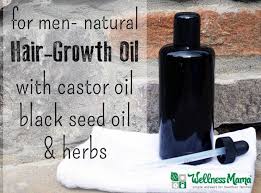 Probably one of the most unique black seed oil benefits is its uncanny ability to help restore hair loss. No one quite understands why it happens, but it’s not too hard to guess that it has something to do with its powerful antioxidant and antimicrobial properties. By strengthening hair follicles, there is very good reason to see how black seed oil can help promote strengthened hair roots.
Probably one of the most unique black seed oil benefits is its uncanny ability to help restore hair loss. No one quite understands why it happens, but it’s not too hard to guess that it has something to do with its powerful antioxidant and antimicrobial properties. By strengthening hair follicles, there is very good reason to see how black seed oil can help promote strengthened hair roots.
________________________________________
6. Skin
Produced in the retina, choroid and epidermis, melanin are pigments that protect the skin from damage. You probably are most family with it being the main chemical responsible for giving our eyes and skin their individual color. Known to promote and inhibit melanogenesis (melanin production), black seed oil benefits on the skin and other cells are profoundly healing. 

For example, in a recent study conducted by Iranian researchers, Nigella saliva was found as effective as the skin cream Betamethasone in improving quality of life and decreasing severity of hand eczema. (19) When you consider that black seed oil has virtually no side effects, the benefits of Nigella, in fact, far exceed medical intervention!
________________________________________
7. Infections (MRSA)
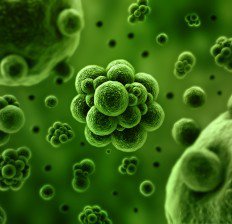 Of all the superbugs that black seed oil can kill, Methicillin resistant Staphylococcus aureus (MRSA) is one of the most important. MRSA is plaguing hospitals and nursing homes across the globe because ordinary staph infections are becoming resistant to generic antibiotics. The elderly population is especially at risk because it is generally associated with invasive procedures such as surgeries, intravenous tubing, and artificial joints. (20) Primarily due to weakened immunity, the growing population of senior citizens has made MRSA a global public health risk.
Of all the superbugs that black seed oil can kill, Methicillin resistant Staphylococcus aureus (MRSA) is one of the most important. MRSA is plaguing hospitals and nursing homes across the globe because ordinary staph infections are becoming resistant to generic antibiotics. The elderly population is especially at risk because it is generally associated with invasive procedures such as surgeries, intravenous tubing, and artificial joints. (20) Primarily due to weakened immunity, the growing population of senior citizens has made MRSA a global public health risk.
Thankfully, one of the strongest black seed oil benefits comes to the rescue. Pakistan scientists took several strains of MRSA and discovered that each one was sensitive to N. Sativa, proving that black seed oil can help slow down or stop MRSA from spreading out of control. 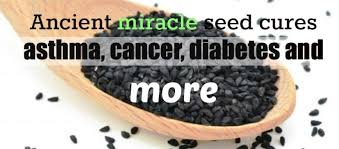
________________________________________
The Remedy For Everything But Death
What are the Side Effects of Black Seed Oil?
 There are no known side effects of Black Seed Oil if it is taken moderately.
There are no known side effects of Black Seed Oil if it is taken moderately.
Black Seed Oil for Pregnancy – Although it is strongly recommended to consult with your doctor on an individual basis, there have been some studies that show positive results when taken during pregnancy. However there has not been enough concrete evidence to draw any conclusions, especially since in some cases it can affect the smooth muscle contractions of the uterus. Therefore, it is not recommended for use during pregnancy.


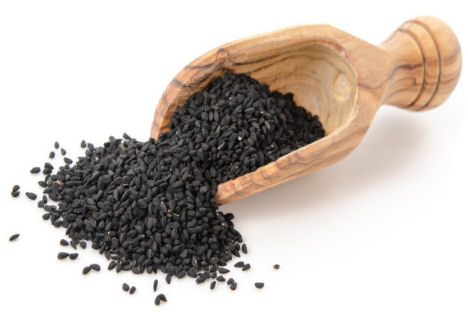








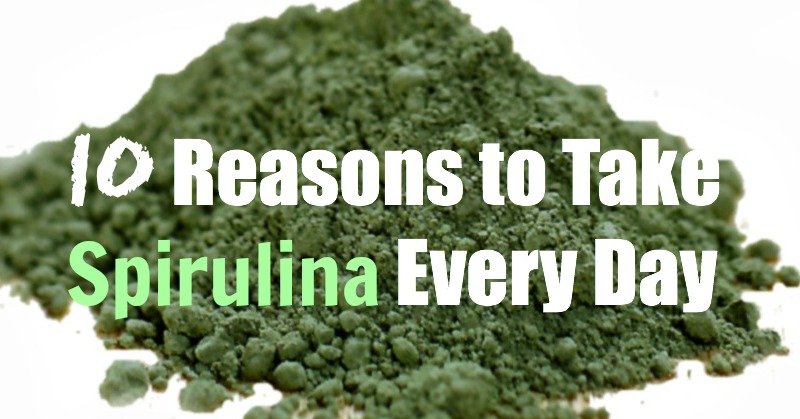
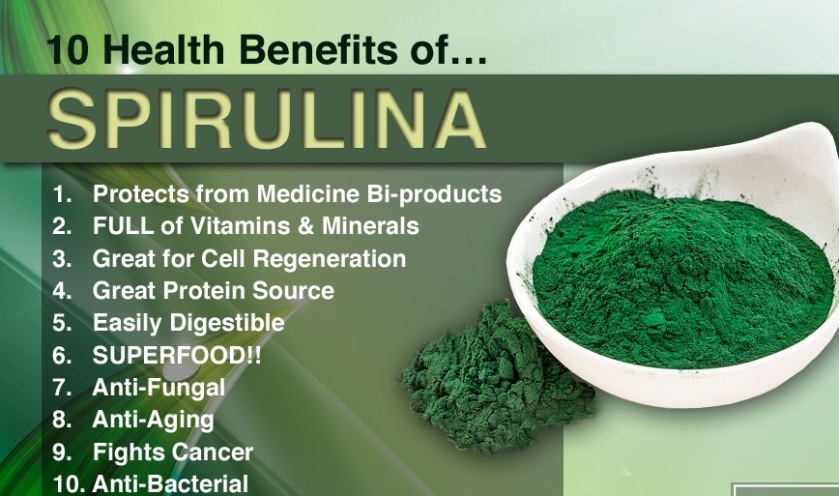
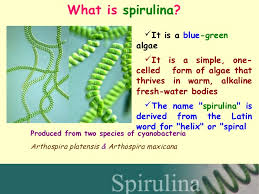
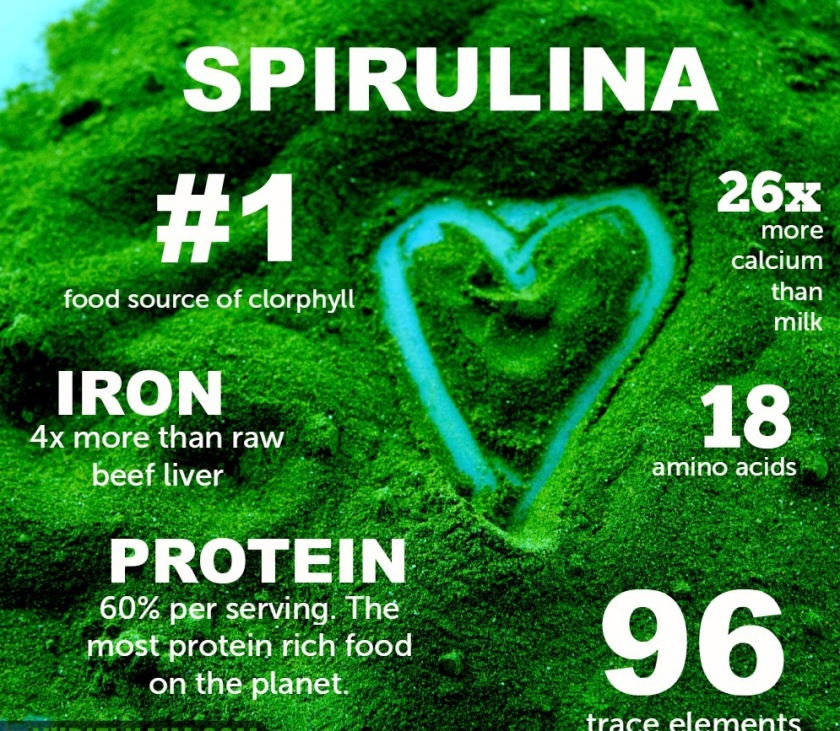
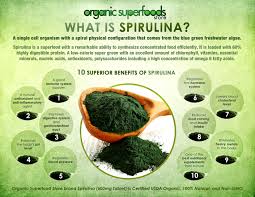
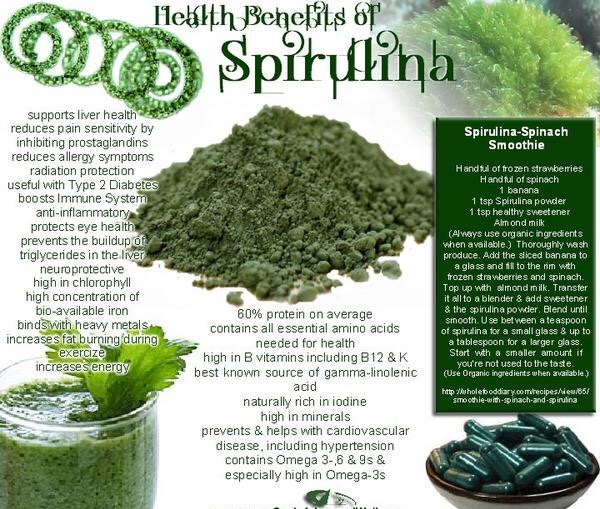




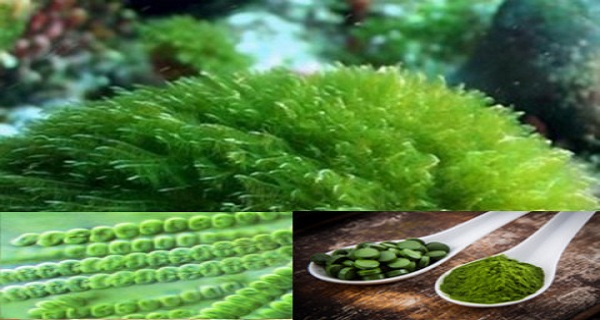
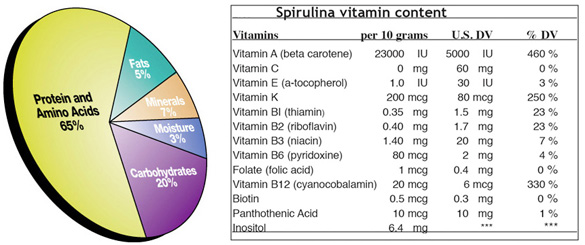



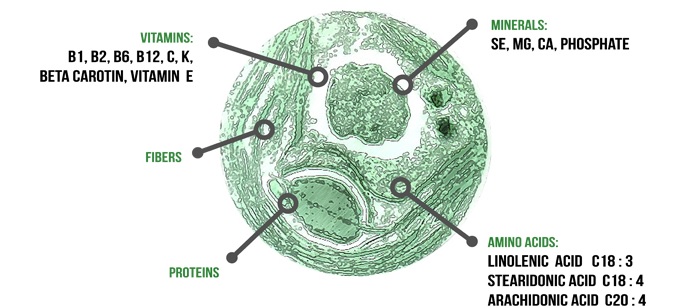
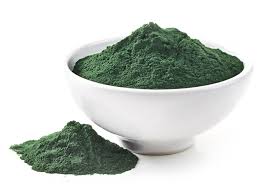

 One recommended dose is 3–5 grams per day, but the amount used may depend on the product, the individual
One recommended dose is 3–5 grams per day, but the amount used may depend on the product, the individual 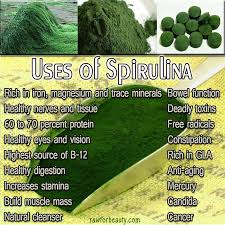 using it, and the indication for which it is being taken.
using it, and the indication for which it is being taken.
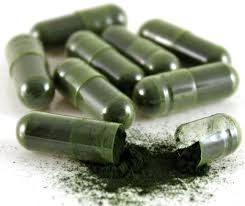

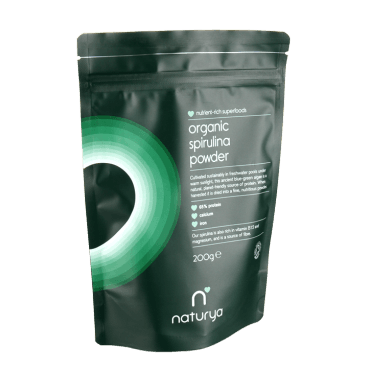
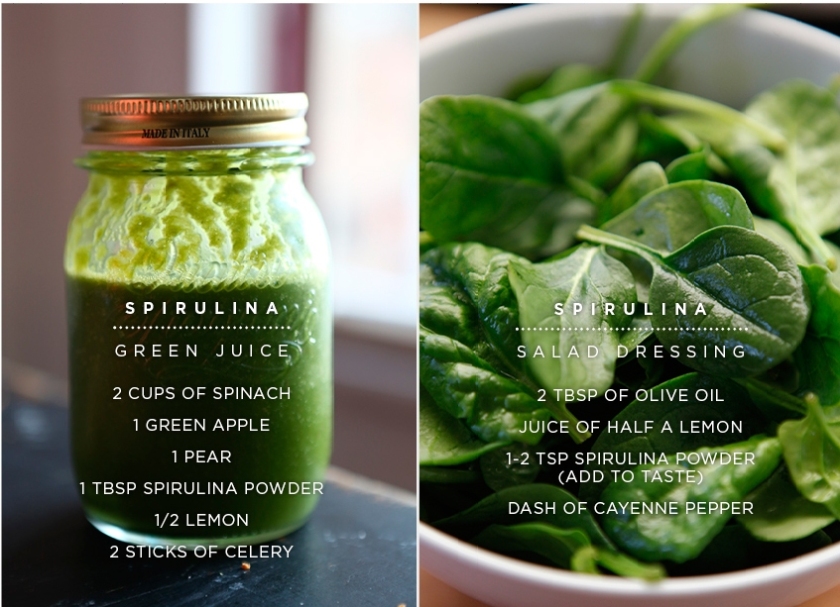
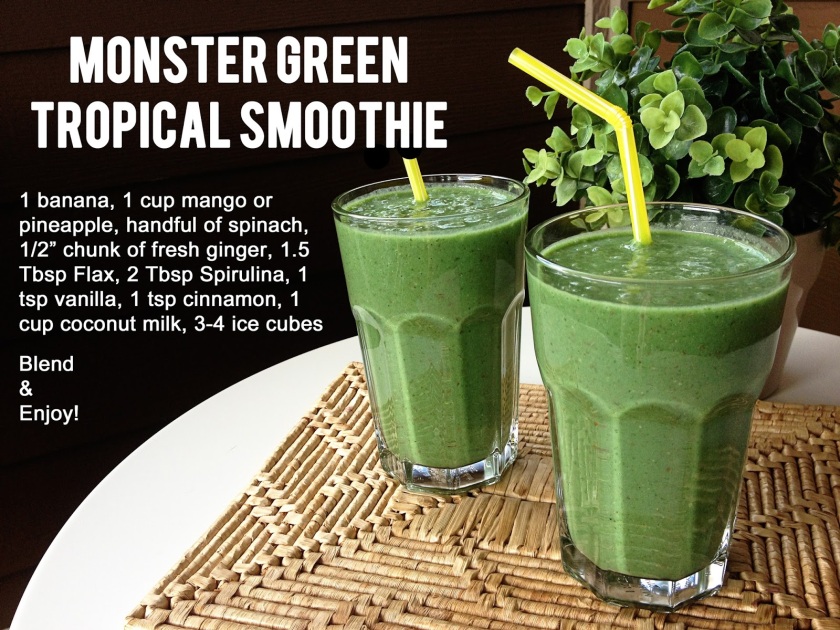

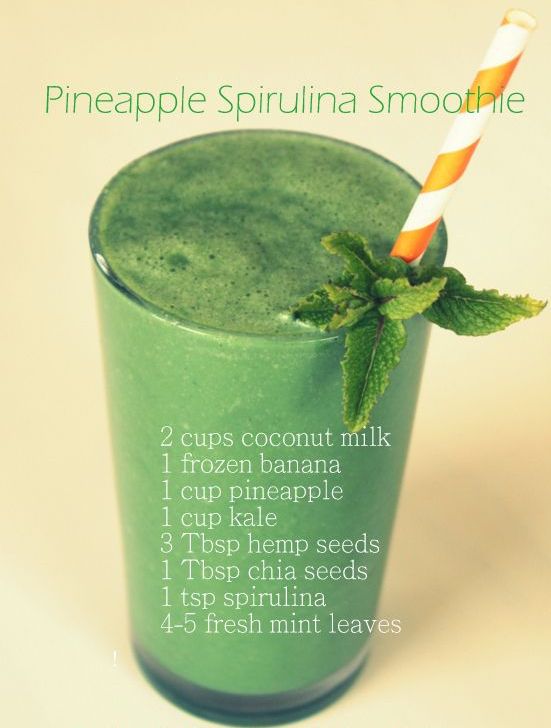
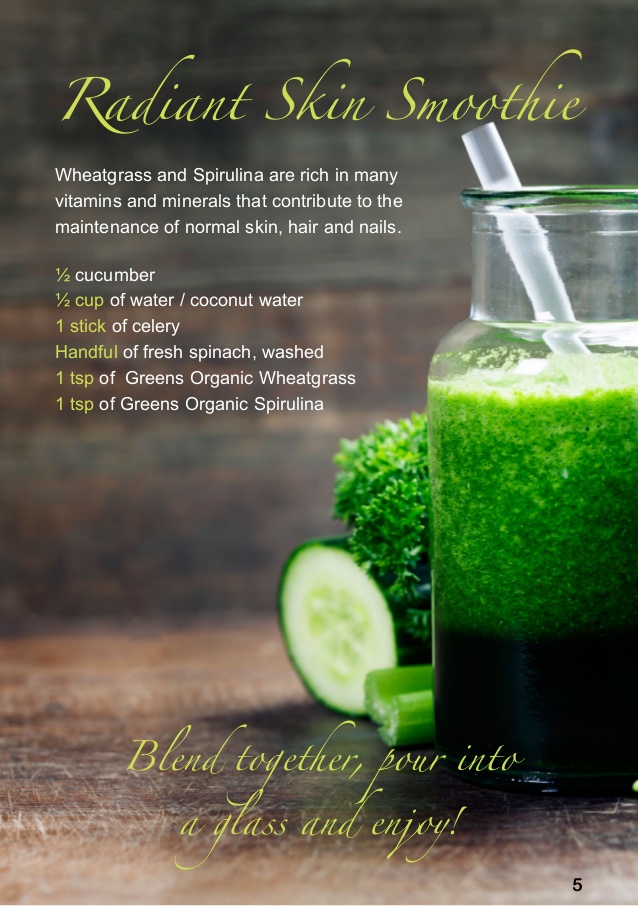








 Facing the modern world means a daily onslaught of pollution, chemicals and air conditioning. It’s no wonder we spend money on impressive-sounding skin treatments, that peel, scrub and clarify our skin.
Facing the modern world means a daily onslaught of pollution, chemicals and air conditioning. It’s no wonder we spend money on impressive-sounding skin treatments, that peel, scrub and clarify our skin.
 spirulina absorbs water, so it can cleanse the pores brilliantly. It is also a wonderful source of the powerful pigment beta-carotene. If you have very sensitive skin, simply replace spirulina with Organic Burst Wheatgrass, or try adding 1tbsp natural organic yoghurt to cool.
spirulina absorbs water, so it can cleanse the pores brilliantly. It is also a wonderful source of the powerful pigment beta-carotene. If you have very sensitive skin, simply replace spirulina with Organic Burst Wheatgrass, or try adding 1tbsp natural organic yoghurt to cool.
 Mix together one tablespoon of Spirulina and one tablespoon of Raw Honey. Stir really well in a bowl until the consistency is creamy. Spread all over your face either using your fingers or a foundation brush (I find that using a foundation brush helps to apply the mixture more evenly). Leave on for 20-45 mins. Wash with warm water and feel the difference in your skin!! I do this mask once or twice a week and absolutely love the results.
Mix together one tablespoon of Spirulina and one tablespoon of Raw Honey. Stir really well in a bowl until the consistency is creamy. Spread all over your face either using your fingers or a foundation brush (I find that using a foundation brush helps to apply the mixture more evenly). Leave on for 20-45 mins. Wash with warm water and feel the difference in your skin!! I do this mask once or twice a week and absolutely love the results.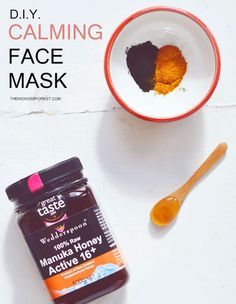
![Historical use[edit] Spirulina was a food source for the Aztecs and other Mesoamericans until the 16th century; the harvest from Lake Texcoco and subsequent sale as cakes were described by one of Cortés' soldiers.[54][55] The Aztecs called it "tecuitlatl".[47] Spirulina was found in abundance at Lake Texcoco by French researchers in the 1960s, but no reference to its use was made by the Aztecs as a daily food source after the 16th century, probably due to the draining of the surrounding lakes for agricultural and urban development.[4][47] The topic of the Tecuitlalt, which was earlier discovered in 1520, was not mentioned again until 1940, the French phycologist Pierre Dangeard mentioned about a cake called “dihe”, consumed by Kanembu tribe, African Lake Chad, Kanem (Chad, Africa). Dangeard studied the “dihe” samples and found that it is like a puree of spring form blue algae. Spirulina has also been traditionally harvested in Chad. It is dried into dihé, which are used to make broths for meals, and also sold in markets. The spirulina is harvested from small lakes and ponds around Lake Chad.[56] During 1964 and 1965, the botanist Jean Leonard, during his Belgian Trans-Sabaran Expedition, confirmed that dihe is made up of Spirulina and thus chemical analysis was started on Spirulina. During that time, Léonard received a request from Sosa-Texcoco Ltd, Mexico to study a bloom of algae in their sodium hydroxide production facility. As a result, the first systematic and detailed study of the growth requirements and physiology of Spirulina was performed. This study, which was a part of Ph.D. thesis by Zarrouk (1966) [57] was the basis for establishing the first large-scale production plant of Spirulina.[15] Spirulina, in 1967 was established as a “wonderful food source” by the International Association of Applied Microbiology.[15] The first large-scale spirulina production plant, run by Sosa Texcoco, was established there in the early 1970s.[1]](https://dailyhealthyremedies.wordpress.com/wp-content/uploads/2016/04/a1-spirulina-3.jpg?w=840)
You must be logged in to post a comment.